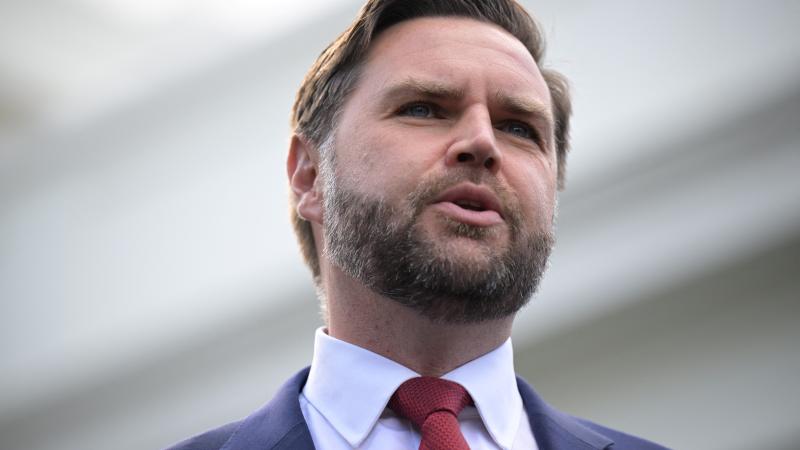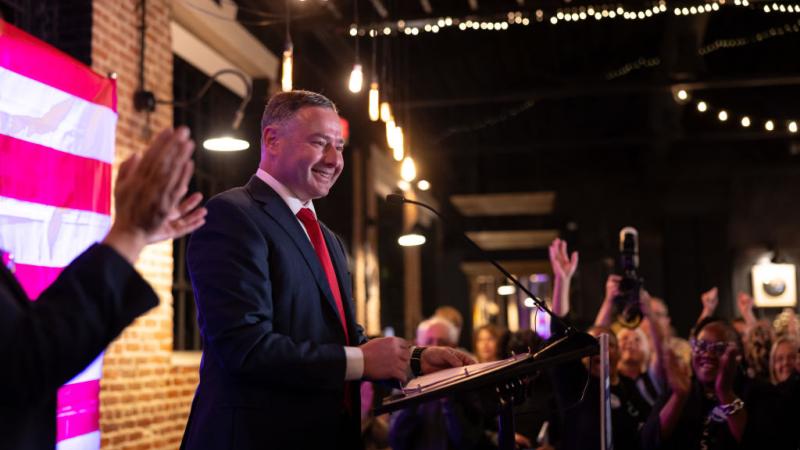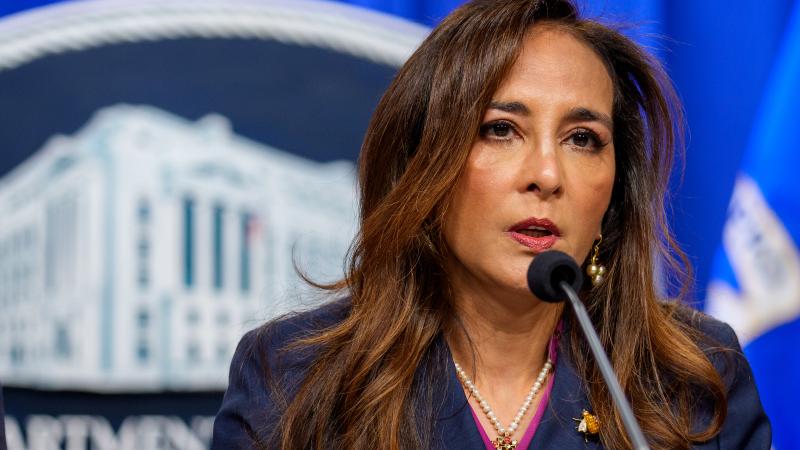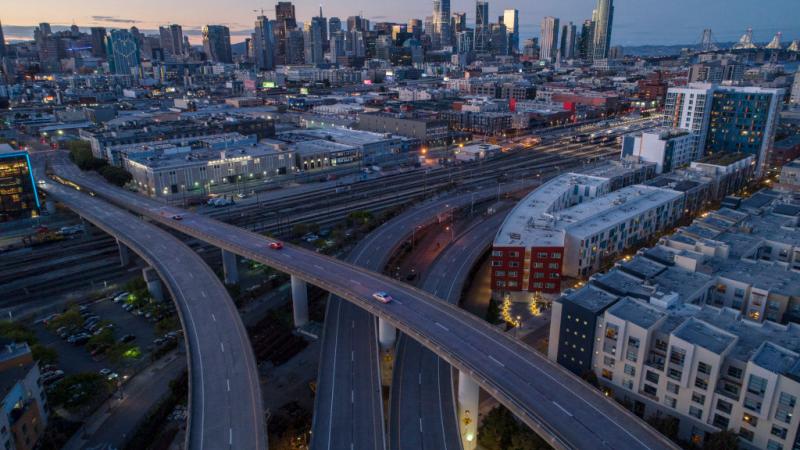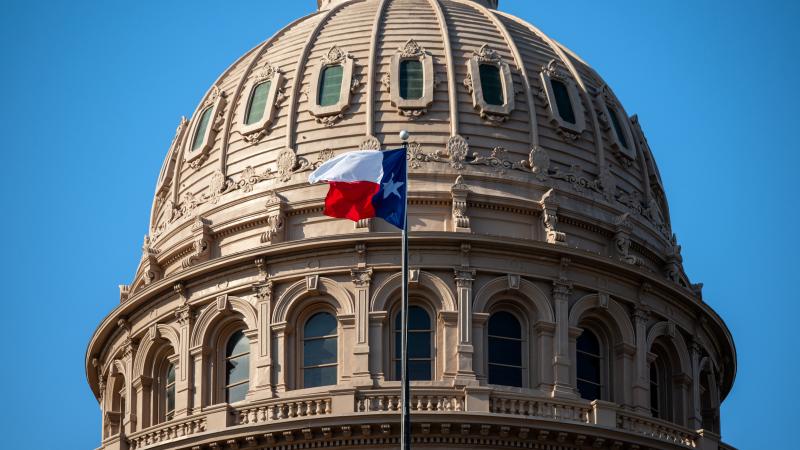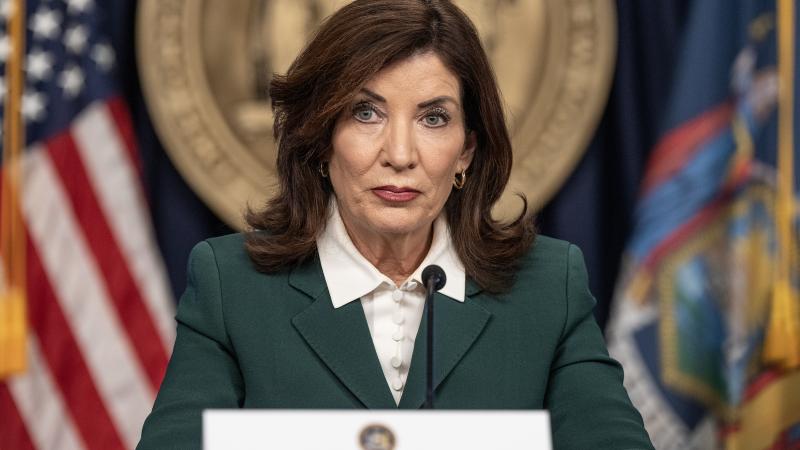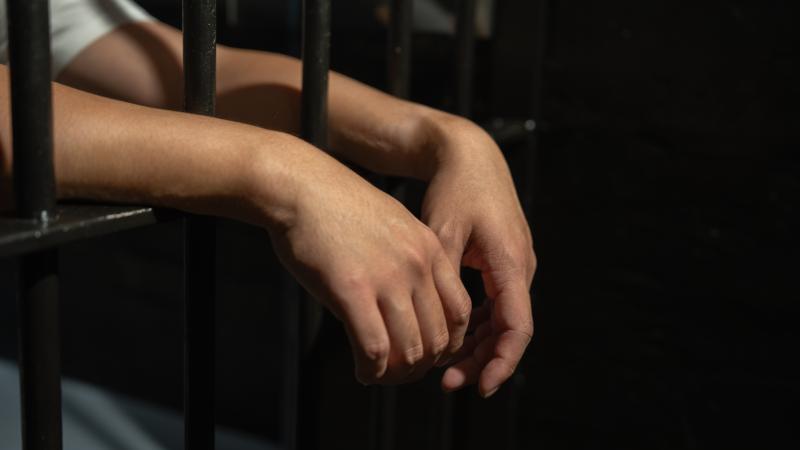How do essential workers feel about the current economy?
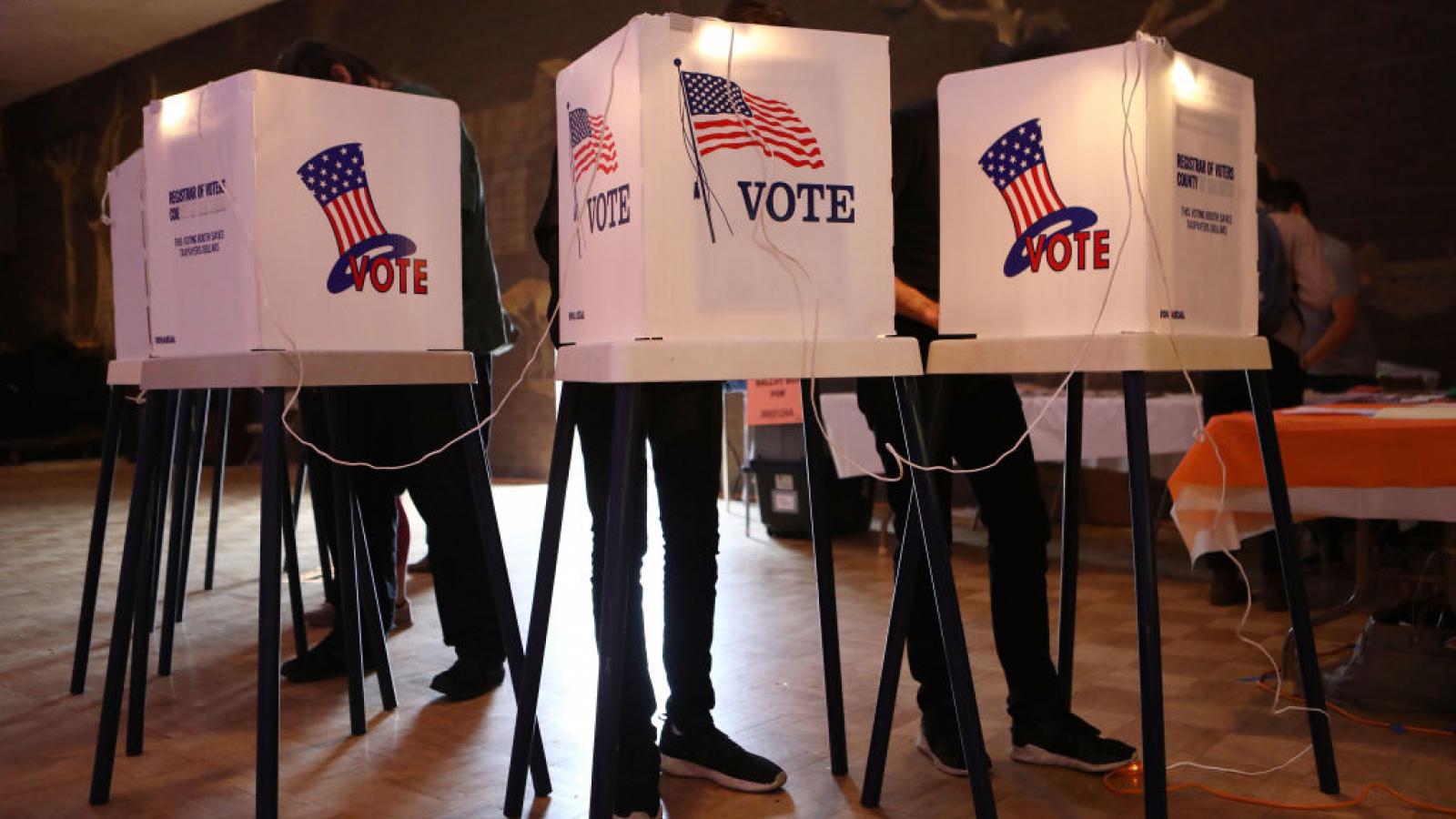
A surprising discrepancy between those who are working from home, and those who are back at their workplaces.
Full Transcript:
Scott Rasmussen 0:08
Good morning, Scott Rasmussen here. Welcome to my podcast: Scott Rasmussen's Number of the Day. Ever since the pandemic swept across our nation and you have these lockdown orders in effect, then questions about the pace of reopening. We've heard an awful lot about people who were working from home and in the Boom and Zoom conferences, and all these things that were happening, you know, to talk about ways to virtually connect with people. And we see celebrities saying we're all in this together and they put together really cool music presentations and get some of their buddies and they think that something's up. That's working from home. But there's another group of workers that we don't hear about very much. And these are people who are actually out in the workplace who are actually interacting with customers on a regular basis or interacting with coworkers. Now, we do hear about frontline workers like healthcare workers, but for the most part work, we're missing a lot of these people. We're not hearing the stories of people who are in the workplace, who are engaging in-person with other human beings as a part of their regular work experience. We're going to explore the difference between people who are outworking, and people who are working from home in the B-block. And the way we're going to do that is to take today's Number of the Day, which is 39. 39% of voters nationwide say that they trust Democrats more than Republicans on the economy. 38%, almost the same number of trust Republicans more; the rest say they either trust neither party or aren't really sure. And by the way, I should point out, you know, these numbers are a big change from earlier in the year, the beginning of the year, talking about the economy was President Trump's strength. It was his card that he was going to play to win reelection. Well, a lots happened since then. And the fact that Democrats are even with Republicans on trust in the economy is a really worrisome sign for Republicans and a celebratory sign for Democrats. But in the B-block, I'm going to talk not so much about those implications as how are these people who are outworking, who are actually interacting with customers? How are they seeing the world and how is it different from the people we hear about who are Zooming from home? While you're waiting for that, take a moment, share this podcast with your friends, and I hope you'll subscribe to Scott Rasmussen's Number of the Day.
Welcome back to Scott Rasmussen's Number of the Day. I'm Scott and today's number is 39. 39% of voters trust Democrats more than Republicans when it comes to the economy. 38% trust the Republicans more so. It's a toss-up. But there's a big gap between people who are working from home and don't have contact with customers or coworkers, and those who are outworking people who do have regular contact with other people face-to-face in person. The people who are outworking, the people who are interacting with other humans tend to trust Republicans a lot more than Democrats on the issue of the economy. Those people who are staying at home, well, they tend to trust Democrats a lot more. And then you see this reflected in some other data as well. For example, President Trump's job approval rating is much higher among people who are out in the workplace than it is among people who are working from home. One great measure of how big the difference is between these groups is the people who are outworking the people again who are interacting with other human beings and as customers and coworkers. Well, most of them say looking back these lockdowns have done more harm than good, but the people who are working at home who aren't seeing other people, they're taking the opposite view. No, no, no, they say we needed these lockdowns. Now, you know, we're talking about differences of degree here. Overwhelmingly, people do believe that at least for some period of time, the lockdowns were essential. Some people believe they still are. Some things we need to reopen more quickly. But in terms of the overall impact, a majority of people who are outworking say those lockdowns did more harm than good. A majority of people who are working without interaction, in-person interaction, they're saying no. We think the lockdowns have done more good. And you see these kinds of differences all the way through the data.
One perhaps surprising piece of information comes from concerns about, you know, the relative concerns people have, you know, which is the bigger threat the economy or the health. The people who are outworking, the people who are interacting with others, you might think they're more scared about the economy or about their own health, but in fact, they are somewhat less concerned about the health risks than those who are working from home. Now, look, part of that may just be that's why they're outworking with customers. People who feel more comfortable about it, who are okay with their own health risks, who are-- have, you know, have these views and we know there was a partisan divide on these views. But people who have these views are probably more likely to go reengage socially more likely to reengage and get involved in a workplace environment where, you know, where there are other people around and people who are more fearful about their health. Well, they're more likely to say, you know, I think I'll stay home and do another series of Zoom conference calls. Some of this is built-in by who the people are. For example, people who are out there in the workplace, talking to other people, interacting with other people in-person, a majority of them do not have a college degree. But a majority of the people who are working in isolation, well, they actually do have a college degree. So, big difference there. And part of what we're seeing, I think with all of this, or part of the reason I think it's so important is because we have heard so much about these people who are working from home and all the new things we're learning and all the ways the tech companies are trying to capitalize on this or to make things easier. But there's a big chunk of the workforce, about one out of three workers, who are out there dealing with customers in-person all the time. And we're not hearing their stories, again, with the exception of the frontline workers, the healthcare workers and others. And I think if we're going to have a healthy debate about where this process is going, we really need to include all of the voices. We need to include, we need to recognize that there are a lot of people out there who are saying, 'yes, we're thrilled to be working again, we're thrilled to be part of this process.' And, you know, it doesn't mean they're ignoring the health risks. It doesn't mean they're being irresponsible. It means they have a different assessment of the risks. And I think their views have really been underappreciated. As we've gone through the process so far, I'll be back with some other thoughts in the C block. But again, I want to remind everybody that if you're looking for details on the numbers that I talked about here, or details on the survey, the way the survey was conducted, or any of this information, you can go to Ballotpedia.org. My Number of the Day is posted there every morning. You can also go to ScottRasmussen.com. We do have cross tabs and methodology and things posted there. So you can do that. And in addition, of course, I'd like to encourage you to share this podcast with your friends and also to subscribe to Scott Rasmussen's Number of the Day.
Welcome back to Scott Rasmussen's Number of the Day. I'm Scott, today's number 39. 39% of voters nationwide say they trust Democrats more than Republicans when it comes to the economy. An almost identical number 38% say they trust Republicans more. But, what I've been focusing on today is the gap between people who are working from home without interacting with others and people who are out in the workplace or outworking amidst customers and coworkers. Those who are outworking tend to be more supportive of Republican policies or the president. Those who are working from home more supportive of the Democrats. And you know, there's a bunch of demographic markers that help us understand that. But what's interesting is this-- is that ultimately, this has a big implication-- has big implications for policies. And sometimes and, as I said before, if people who are outworking are not, if their views-- if their stories aren't being told, or if they're being told from the perspective of people who are more fearful who are working at home, we're missing a part of the debate. How does that impact the policy world? Well, we asked people whether businesses should be allowed to determine their own rules for whether somebody has to wear a mask. And we also asked if governments have the right to require citizens to wear masks when they're out in public. And among those who are outworking about six out of 10 say yes to both those things. They think businesses should be allowed to set their own rules. They think the government should be able to require masks in public. So six out of 10, you know, a pretty decent majority. When we go to the people who are working at home, it's an entirely different dynamic. The number of-- among those who are working at home, they're more likely to say, 'well, yes, of course, governments have the right to impose those rules.' And they are far less supportive of the idea that businesses should be able to set their own rules and look, think about that for a moment. When we talk to people who are outworking in a business, with customers, with coworkers, they're the ones saying, 'yeah,' most of them are saying 'we believe businesses should have the right to set their rules.' Those who are not actively in the workplace are saying 'no, businesses shouldn't.' So, if we only hear, if we only hear stories of people who are working from home and not interacting with others, we're missing a vital part of the entire debate.
This is a topic that Ballotpedia is going to continue looking at in the coming weeks and months. I'll be doing a lot of research on the topic and reporting back as we find things of interest. And it's, again, it's a different way of looking at and understanding the world around us. I can sit here and talk about Republicans and Democrats and men and women and gender gaps all day. But this maybe gives us a little different perspective and it will be really interesting to see what happens when more and more people get back into the workplace. Will this divide stay the same? You know, as people go back to work, will they begin to trust Republicans more and reopening? Or is this simply a factor based on who, you know, on their preexisting political preferences? I'll be back tomorrow morning with Scott Rasmussen's Number of the Day. It's released every day by 8 a.m. Eastern. You can subscribe wherever you download your favorite podcast, and I certainly hope, I'd appreciate it if you'd share this with your friends. Encourage them to subscribe as well. For now, though, have a great day. Talk to you tomorrow.
